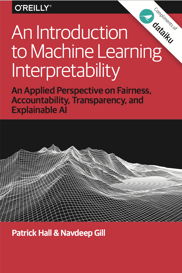Every business has a different path to Enterprise AI that’s necessarily affected by its industry, history, infrastructure, competitive environment, clientele, and more. That means that from region to region, trends and maturity in Enterprise AI differ.

That’s why we’re excited about the official opening of Dataiku’s first office in the APAC region (in Sydney, to be exact) — we’re looking forward to taking on the challenges and nuances of a new market.
I talked to Steve Gilbert, Sales Director in the region, about Enterprise AI in APAC and what makes businesses (from their organizational setup to their challenges) unique.
Lynn Heidmann (LH): What is the market for AI, data science, and machine learning tools like in APAC, or more specifically in Sydney and in Australia?
 Steve Gilbert (SG): I see the APAC region having one of the highest growth rates globally in terms of adopting data science tools over the next three to five years. This is being primarily driven by countries such as Singapore, Korea, Japan, and Australia.
Steve Gilbert (SG): I see the APAC region having one of the highest growth rates globally in terms of adopting data science tools over the next three to five years. This is being primarily driven by countries such as Singapore, Korea, Japan, and Australia.
In Australia, I consistently hear that advanced analytics and machine learning (AI) are top priorities for CIO and CDOs as a way of differentiating themselves. However, as business leaders turn to these tools to unlock the value in their enterprise data assets, I see a risk if they do not look past the hype of AI to define a clear analytics vision for their business.
LH: Are there a lot of businesses in APAC that are already doing AI? If so, what are the sectors that are most advanced in this space?
SG: Machine learning (ML), a core component of AI, is not new. Businesses such as banks and insurance companies have been leveraging ML for some time with varying degrees of success. What I think is new is the explosion of analytics tools, vendors, and cloud compute infrastructure.
This, combined with challenging economic conditions and hype about the value of AI, has businesses rapidly evolving. These data-driven organisations have both the most to gain and most to lose as they select the right tools, partners, and hire people.
I think Dataiku’s unique value is abstracting much of this complexity away from the user. Having the ability to leverage a single, collaborative, and governed platform that addresses the entire analytics pipeline from project ideation; through data preparation, model development, deployment and management (operationalisation) reduces cost and risk.
LH: What is the largest area or industry for machine learning and AI growth in the APAC region?
SG: I expect the highest growth verticals to be banking, financial services, and insurance (BFSI), health care, telecom, and retail. These industries will form the basis of our focus for the remainder of 2019 and into 2020. Manufacturing and government are also progressive industries in their use of data, but I expect the aforementioned industries to be the fastest moving with the clearest path to value.
 The highest-growth vertical in APAC for Enterprise AI is banking, financial services, and insurance (BFSI)
The highest-growth vertical in APAC for Enterprise AI is banking, financial services, and insurance (BFSI)
LH: What is the general sentiment in the region around machine learning and AI (i.e., does it lean more toward the hopeful and positive side, or AI-is-doing-evil negative side)?
SG: As I speak with companies in Australia, I hear some negativity with regards to AI bias and concerns around a lack of job security. However, this is far outweighed by a positive sentiment associated with the understanding that AI can improve the customer experience and protect companies from risk and fraud.
Another positive (or negative, depending on how you view it) is the impact that AI is having on the way organisations manage, organise, and democratise data. Another way of saying this is, as organisations data literacy improves, the business need increases for access to richer sets of data by a wider set of technical and non-technical users.
LH: Is machine learning interpretability a hot topic in the region? If not, what are some other topics (or concerns) in the space that everyone’s talking about?
SG: Machine learning interpretability is a hot topic at the moment, especially in regulated industries. Correlation often does not equal causality; being able to reasonably predict the impact that changes made to inputs and parameters will have on the outcome of a model is needed when it comes to making decisions and explaining them.
 Learn more about ML interpretability, a hot topic in the APAC region, from O'Reilly
Learn more about ML interpretability, a hot topic in the APAC region, from O'Reilly
With the shift from pure research to production-oriented work, other topics such as operationalisation (o16n) are top of mind with CDOs and analytics leaders. Being truly end-to-end is one of the factors that has contributed to our success in operationalisation; seamlessly integrating the data ingestion, preparation, and modelling through to deployment and management. Maintaining the consistency and coherency throughout an entire data science project, where final deployments can be traced right back to the initial datasets, processes, and actions that took place within the project.
LH: How are educational institutions in APAC handling the rise of data science, machine learning, and AI? Are you seeing an increase in the number of courses, areas of study, etc.?
SG: I’ve not engaged directly with educational institutions; however, I do see an increase in the number of courses and special interest groups, like meetups.
LH: What is the market like for finding and hiring data talent (specifically data scientists, but also analysts and C-level, like CIOs or CDOs)?
SG: Organisations also tell me that attracting skilled people is hard and they are increasingly turning to training to raise the overall data literacy of their organisations. In very established industries like BFSI, there is also a gap or resistance at senior executive levels to understand or embrace the value of data through advanced analytics
LH: Are there any particularities in the APAC region on how data teams are structured or how they operate?
SG: With regards to the structure of data science teams, I see organisations seeking guidance on best practices. I see this as an opportunity for Dataiku to bring our broad range of experiences from multiple use cases and industries in other geographies to help.




